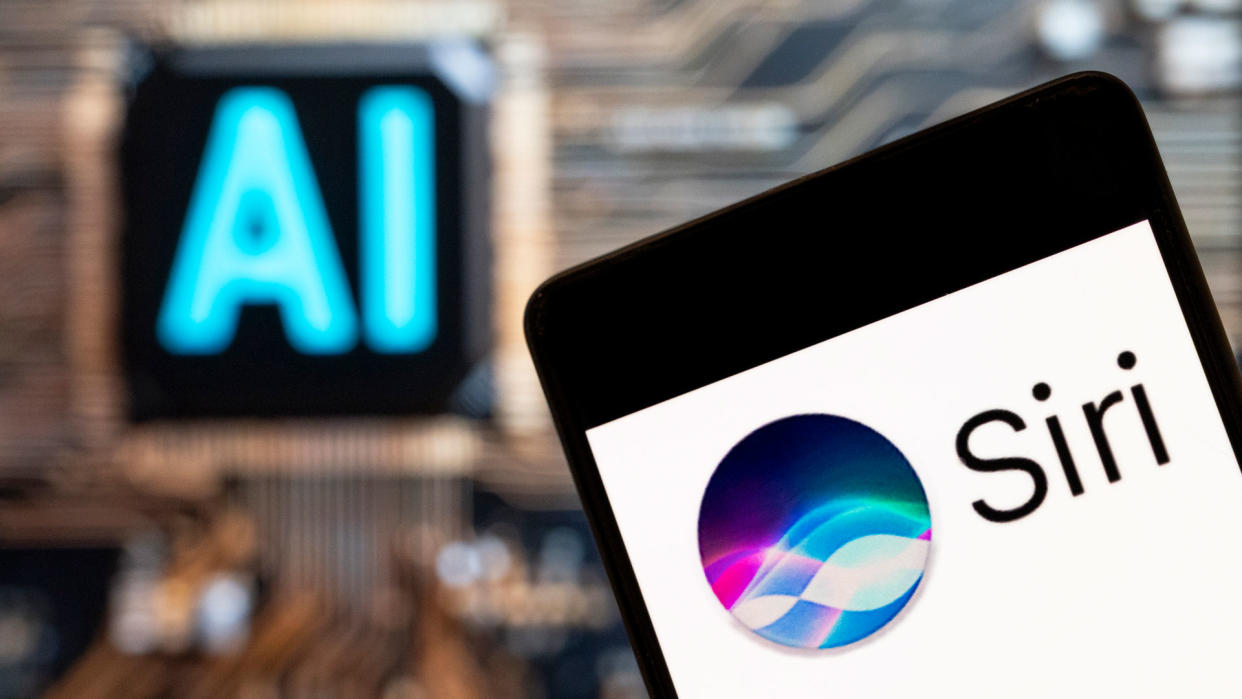Without a Siri brain transplant, Apple will lose the AI war

Siri is not the same simple, charming digital assistant Apple launched with the iPhone 4s in 2011. Though always AI-based, Siri 2024 is considerably smarter than it was back then, when I asked it simple questions ("Where are the pumpkins?") and had it perform simple tasks, like scheduling a meeting.
It's had more than a decade of brain transplants to make it a better interlocutor and digital companion, but Apple has never even tried to make Siri a true ChatBot, which was fine until the world changed early last year.
The time has long passed when Apple can steer clear of a category while it watches others trip and stumble. Generative Artificial Intelligence (AI) is easily the most important technological innovation of this century, and while not everyone is pleased with how ChatGPT, Google Bard, and Windows CoPilot work, their penchant for hallucinations and plagiarism is doing little to slow down their steady progress. We're never rolling back the clock and walking away from Generative AI.
Put simply, it's time for Apple to act and the most obvious way to introduce its own form of Generative AI is through Siri, and only Siri.
What's in an AI name?
Microsoft was comfortable dropping "Bing Chat" in favor of CoPilot because Bing still has under 4% of the global search market. Nobody misses asking "Did you ask Bing Chat?". Nobody knows what Samsung's Galaxy AI means for its Bixby digital assistant (a poor cousin to Siri) but I suspect no one would squawk if Samsung replaced the Bixby button with a Galaxy AI button on its upcoming, anticipated Samsung Galaxy S24 lineup.
For Apple, however, I submit that there is too much brand equity to do away with the Siri name. It's a good name (something the late Steve Jobs, who died a day after its launch, surely had a hand in defining) and the iconography is solid and smart-looking. Have you pressed your iPhone Siri button lately? The animation on iOS 17 is very futuristic and perfect for what I assume is an upcoming Generative AI brain transplant.
My belief was bolstered by a recent news item that suggests Apple's Generative AI work is going well on its Ajax language model and that could mean a Siri that handles conversation and personalization far better than the current version.
Still, this "leak" offers scant details and doesn't confirm my hope that Apple does the hard thing and makes the Generative AI leap that will vault Siri into dynamic space filled by ChatGPT, Bard, and LLMs like Google's Gemini and Meta's Llama 2.
Apple has the power
The reality is that if Apple applies a truly powerful LLM to Siri (backed by an even more powerful A18 Pro CPU that'll handle on-board ML and fit ample tokenized data stores inside) and allows it to connect to all the pieces of Apple's substantial Apple ecosystem, Siri will be able to do things most chatbots can only dream of.
It could, for instance, finally, fix the mess that is Apple Home Kit and make sense of control and setup of every single connected smart device in an Apple-based smart home. Better yet, much of the work could be done with little more than your voice.
And who knows what's possible when you have an astoundingly smart Siri inside your best iPhone? It will help you optimize and utilize your phone in ways you never thought possible. There is a clear top-to-bottom benefit of a Generative AI-based Siri.
None of this, by the way, would break Apple's ironclad privacy promise if all Siri communications were wrapped in end-to-end encryption. This way, we could talk to Siri on Apple Car and have it handle a variety of tasks in our home before we get there. No concerns about someone slipping into the communication stream and knowing the details of our smart homes or our lives.
Realizing its potential
Siri would, with this ultimate brain transplant, become the conversationalist we always dreamed it could be. To this day, most of my "conversations" with Siri end within two sentences, and it prefers to dump me onto a web page result as opposed to engage in the back and forth necessary to figure out what I want.
Apple's opportunity here is gargantuan and yet I worry it's still fearful that full-scale Generative AI based on data-hungry LLM is too dangerous and could open it up to criticism about privacy or even its machine learning models. People will want to know how Apple trained Ajax and Siri and where the data came from. Is it based on all of our billions of iPhones' activities (anonymized, of course), or did Apple draw the training data from an artisanal well?
I suggest to Apple that it dismiss those concerns and brave whatever comes. It's time for Apple to truly enter the AI race. Do it at WWDC 2024 and set the world on fire. We're ready for it.
